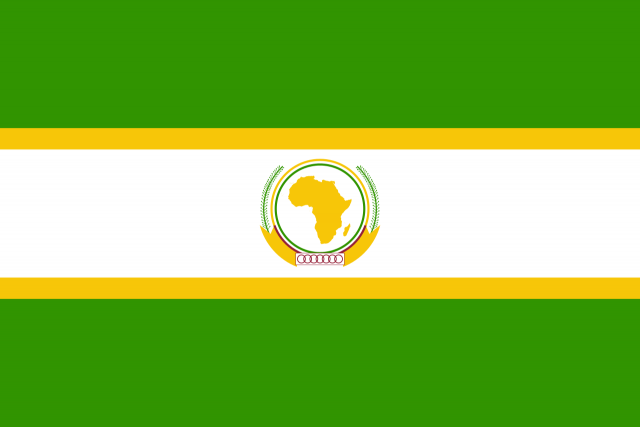Organization of African Unity
The Organization of African Unity (OAU) is an organization founded to promote harmony between African governments. It seeks to coordinate and increase cooperation among African nations, to defend their independence, and to eliminate all forms of colonialism from Africa. The OAU also promotes international cooperation in keeping with the charter of the UNITED NATIONS and the Universal Declaration of Human Rights.
The OAU grew out of the Pan-African movements of the early to mid-1900s, such as those led by Marcus GARVEY and Kwame NKRUMAH. These groups promoted African unity in the struggle against domination by European colonial powers. In 1963 the leaders of the 32 independent African nations that existed at that time met in ADDIS ABABA, Ethiopia, for the Conference of Independent African States. On May 25 they signed the charter that created the OAU.

In articles II and III of the charter, the members agree to promote unity and solidarity, cooperate to create better lives for African people, defend their borders and independence, wipe out all forms of colonialism in Africa, and promote international cooperation, especially with regards to the United Nations and the Universal Declaration of Human Rights. In addition, OAU member states also agreed to coordinate their policies in a number of fields. These included politics and diplomacy; economics, including transportation and communications; education and cultural affairs; health, sanitation, and nutrition; and defense and security. The states also pledged to recognize the equality of member states, to avoid interfering in members' internal affairs, and to seek a peaceful settlement to disputes. They stated that they would condemn assassination or other subversive activities, strive for the independence of all African states, and stay free from other political associations.
The OAU has had several notable successes. Serving as a mediator, it helped resolve disputes in the 1960s between ALGERIA and MOROCCO and between SOMALIA and its neighbors ETHIOPIA and KENYA. The OAU sparked the creation of the African Development Bank, which finds investors and financing from around the world to help pay for African development projects. It has established several helpful commissions, including one that works to place and educate refugees within Africa and another that promotes HUMAN RIGHTS throughout the continent. In 1991 the OAU created the African Economic Community to coordinate economic policies between member states.
Despite its achievements, the OAU has had little impact on some of the greatest problems facing Africa. It has failed to prevent or end most of the continent's wars and has rarely condemned military coups, unconstitutional rule, or conflict between ethnic groups within member states. In a speech marking the OAU's 35th anniversary in 1998, Secretary General Salim Ahmed Salim acknowledged the organization's shortcomings. He called on member nations to rededicate themselves “to the elimination of poverty, misery and blood-shed” and challenged them to turn “declarations and blueprints into concrete programs and activities.” In 2000, the OAU adopted a resolution banning from the organization leaders who came to power by corrupt and undemocratic means. (See also Global Politics and Africa, Nationalism.)